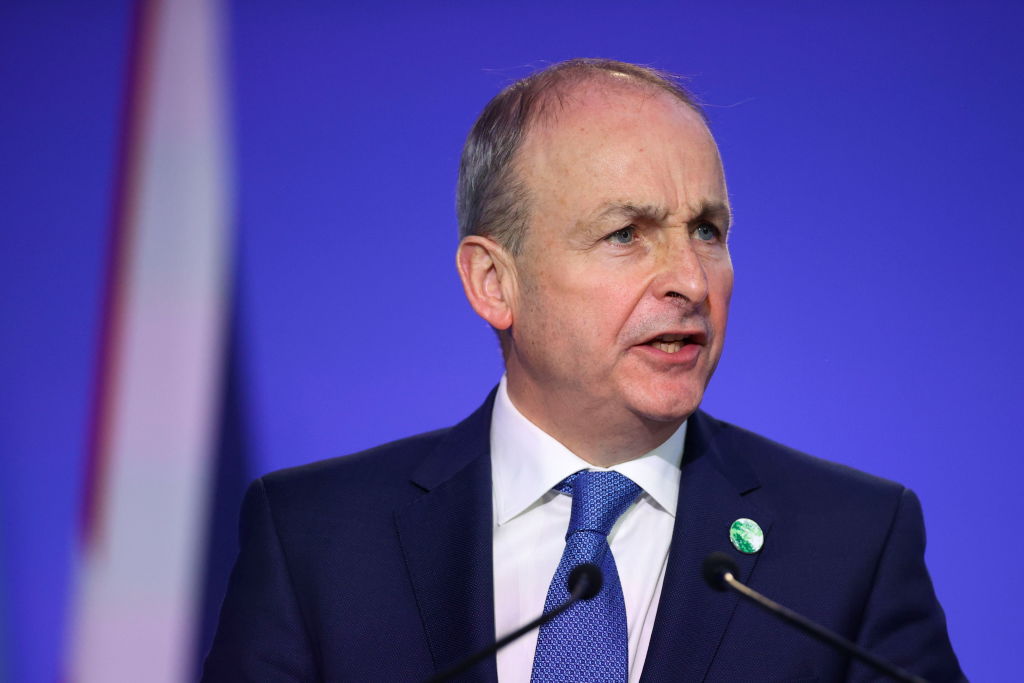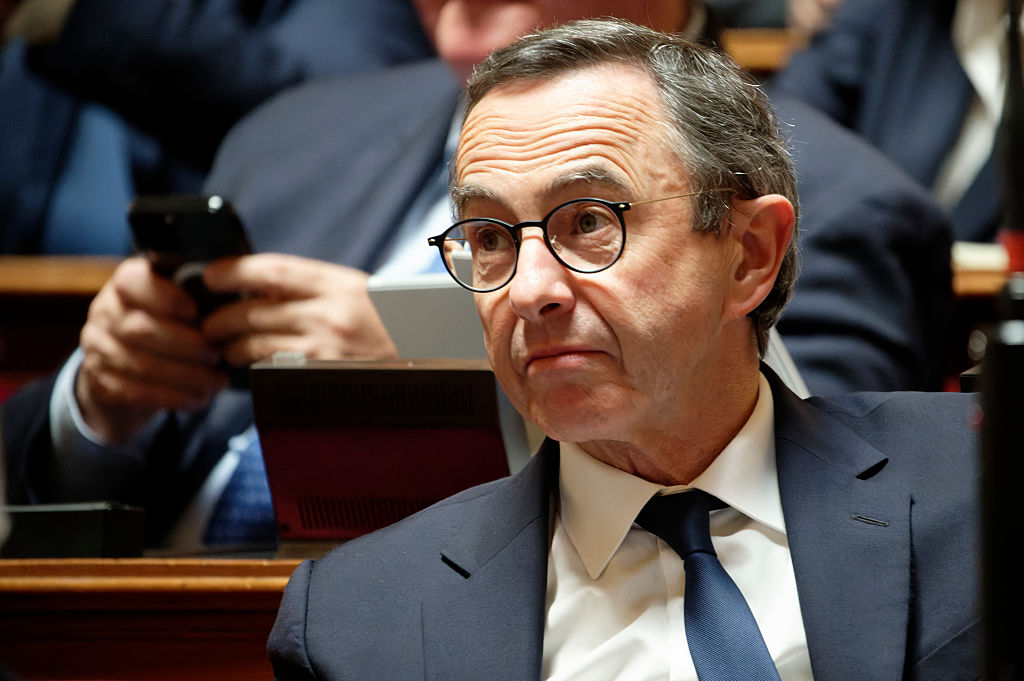‘When in doubt, blame Britain’ has, since Brexit, become something of an iron law of Irish politics. So it came as no surprise yesterday to see Michael Martin, Ireland’s deputy prime minister, attribute Ireland’s mounting migration crisis to Britain’s Rwanda scheme.
There’s an obvious appeal for the Irish government to blame the Rwanda scheme, when it is under fire over its poorly handled migration policy
‘It is having a real impact on Ireland now in terms of people being fearful in the UK,’ Mr Martin said, adding: ‘maybe that’s the impact it was designed to have.’ Mr Martin claims that migrants are fleeing to Ireland from the UK to avoid being deported to Rwanda. This, in turn, is clogging up Ireland’s immigration system. Mr Martin’s remarks came in response to a claim made by the Irish government that the vast majority (more than 80 per cent) of the asylum applicants arriving in Ireland in recent months, many from Nigeria, have crossed the country’s border with the UK, guaranteed by the UK-EU Brexit treaty.
This is the first time the Irish government has blamed the ‘invisible’ border with Northern Ireland (which Dublin campaigned so fiercely for during Brexit) for its migration woes. It is a bitter pill to swallow for Ireland’s leaders, who have, it seems, engineered for themselves the following Catch-22: the government can only shore up Ireland’s borders, as it has promised the public, by dashing its obstinate commitment to an open border. So it is convenient for Mr Martin to suggest that the cause of this latest influx is not Ireland’s check-free border with the North, but what he has dubbed, rather nebulously, the ‘Rwanda effect’. But is there any evidence for this?
Helen McEntee, the justice minister, recently admitted she did not know how many refugees were crossing Ireland’s border with the UK. The Irish government doesn’t keep records of arrivals ‘when not through a designated port, including by travelling over the land border’, she told the Dail last week. But then, days later, and shortly after Rishi Sunak cleared the Rwanda Bill in Westminster, the figure had miraculously appeared.
‘I’d say it’s higher than 80 per cent,’ Ms McEntee told a scrutiny committee in the Irish parliament. It seems Ms McEntee produced the figure from a back of the envelope calculation: deducting the number of applications made at ports and airports, for which there is data, from the grand total registering for asylum with Dublin’s International Protection Office.
It is true that the Irish High Court last month ruled that Britain is not a safe country for asylum applicants because of the Rwanda plan. So it is conceivable that some migrants in Britain thought Ireland a propitious destination for newly minted ‘UK refugees’. But this loophole, which is a month old, can’t account for the numbers the Irish government claims have arrived before then.
There’s an obvious appeal for the Irish government to blame the Rwanda scheme, when it is under fire over its poorly handled migration policy. Much like with Brexit, the blame can be shifted to Britain. And the complicated problem of the Irish border is likely to garner more public sympathy than, say, EU human rights law when explaining vast numbers of arrivals.
It comes at a convenient time in particular for Ms McEntee, whose popularity has been dented by her handling of the migration crisis – which has seen record numbers of asylum seekers arrive in Ireland over the past two years. Since the start of 2023, 7,300 people have been refused refugee status in Ireland. When asked recently how many of these had been deported, Ms McEntee sheepishly admitted the number was under 100. The Irish justice minister was also forced to concede that, of the 188 deportation decisions agreed with other countries by her department in 2023, only three people had been returned.
To solve the migration crisis, the Irish government has pinned its hopes on the EU migration pact, presenting it as a silver bullet to an increasingly disillusioned public. But it will be an uphill battle for ministers to convince people that greater EU control over Ireland’s borders can solve the problem many feel it has caused.
It seems that for an Irish government scrambling around for a scapegoat, Perfidious Albion – in the form of Britain’s Rwanda plan – is just the ticket. But for a growing contingent of Irish people, the true authors of Ireland’s migration crisis are in Leinster House.







Comments